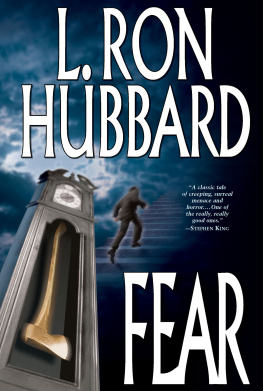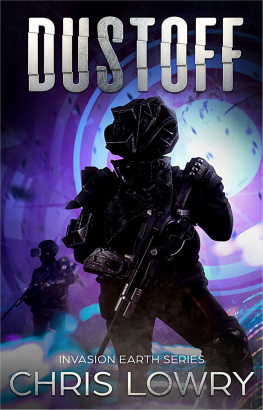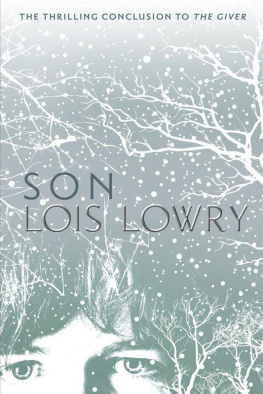Also by
L. Ron Hubbard
Buckskin Brigades
The Conquest of Space
The Dangerous Dimension
Deaths Deputy
The End is Not Yet
Fear
Final Blackout
The Kilkenny Cats
The Mission Earth Dekalogy*
Volume 1: The Invaders Plan
Volume 2: Black Genesis
Volume 3: The Enemy Within
Volume 4: An Alien Affair
Volume 5: Fortune of Fear
Volume 6: Death Quest
Volume 7: Voyage of Vengeance
Volume 8: Disaster
Volume 9: Villainy Victorious
Volume 10: The Doomed Planet
Ole Doc Methuselah
Slaves of Sleep & The Masters of Sleep
To the Stars
Triton
Typewriter in the Sky
The Ultimate Adventure
* Dekalogya group of ten volumes
For more information on L. Ron Hubbard andhis many works of fiction visit www.GalaxyPress.com.
Galaxy Press
7051 Hollywood Boulevard
Los Angeles, CA90028
FEAR
1940, 1991,1992, 1995, 2000 L. Ron Hubbard Library. All Rights Reserved.
Any unauthorizedcopying, translation, duplication, importation or distribution, in whole or inpart, by any means, including electronic copying, storage or transmission, is aviolation of applicable laws.
The words MISSIONEARTH and WRITERS OF THE FUTURE are
registered trademarks owned by L. RonHubbard Library.
BATTLEFIELD EARTH is a registered trademark owned by
Author Services, Inc., and is used with its permission.
Cover design byPeter Green Design and Mike Manoogian
1998 GalaxyPress All Rights Reserved
ISBN 978-1-59212-559-3 ePub version
ISBN 978-1-59212-085-7 Kindle version
Foreword
Once in a while aneditor sees a story that is so finely crafted that it provides immeasurablepleasure to bring it before the reader. Fear is just such a work, and more, forit not only has great reader appeal, it uniformly inspires awe in top authorsthemselves. From Ray Bradbury to Isaac Asimov, it has earned rare praise as anunforgettable, timeless classic.
Written more than fiftyyears ago, the story has not only withstood the test of time, but additionally,it is credited by literary historians, such as David Hartwell, for transformingand creating the foundations of the contemporary horror genre.
Legend, too, has a habitof springing up around great works. Robert Heinlein, a close friend of L. RonHubbard, was fond of relating the story of how Fear was written on asingle train ride from New York to Seattle.
But it is the impact onthe reader that is the singular, most important test of any work. Fear delivers.
Stephen King, withoutquestion todays master of the horror genre, says it best when he looks back atthe accomplishment represented by Fear:
L. Ron Hubbards Fearis one of the few books in the chiller genre which actually merits employmentof the overworked adjective classic, as in This is a classic tale ofcreeping, surreal menace and horror. If youre not averse to a case of thecold chillsa rather bad oneand youve never read Fear, I urge you todo so. Dont even wait for a dark and stormy night. This is one of the really,really good ones.
In that, he is notalone. Whether read today or reread fifty years from today, the chilling impactwill never fade.
Why is this?
L. Ron Hubbard didsomething no other author had ever successfully done. Without the use ofsupernatural contrivancewerewolves, vampires; without resorting to extremevenuesthe haunted house-on-the-hill, the cellar lab, the strange planet; andwithout using super-psychotic protagonistsFreddy Kruger, Norman Bates; he tookan ordinary man, in a very ordinary circumstance and descended him into acompletely plausible but extraordinary hell.
Why is Fear sopowerful? Because it really could happen. And that is terrifying.
That simple premise hasgarnered more accolades than a thousand books of wolves howling to a pale moonon a dark and stormy night.
So, if youre not afraidof the ordinary, this story is for you.
But, dont say we didntwarn you...
THE EDITORS
Author'sIntroduction
There is one thing which I wish the readercould keep in mind throughout, and that is: thisstory is wholly logical, for all that will appear tothe contrary. It is not a very nice story, nor shouldit be read alone at midnight--for it is true thatany man might have the following happen tohim. Even you, today, might lose four hoursfrom your life and follow, then, in the course ofJames Lowry.
L. Ron Hubbard
Chapter One
Lurking, that lovely springday, in the office of Dr. Chalmers, Atworthy College Medical Clinic, theremight have been two small spirits of the air, pressed back into the dark shadowbehind the door, avoiding as far as possible the warm sunlight which fellgently upon the rug.
Professor Lowry, buttoninghis shirt, said, So I am good for another year, am I?
For another thirty-eightyears, smiled Dr. Chalmers. A fellow with a rugged build like yours doesnthave to worry much about a thing like malaria. Not even the best variety of bug could offer. Youll have a few chills, of course, but nothing to worryabout. By the way, when are you going back to Mexico?
If I go when my wife givesme leave, thatll be never.
And if I had a woman aslovely as your wife, Mary, said Chalmers, Yucatn could go give its malariato somebody else. Oh, welland he tried to make himself believe he was not,after all, envious of Atworthys wandering ethnologistI never could see whatyou fellows saw in strange lands and places.
Facts, said Lowry.
Yes, I suppose. Facts aboutprimitive sacrifice and demons and devils Say, by the way, that was a verynice article you had in the Newspaper Weekly last Sunday.
The door moved slightly,though it might have been caused by the cool breath of verdure which came inthe window.
Thank you, said Lowry,trying not to look too pleased.
Of course, said youngChalmers, you were rather sticking out your neck. You had your friend Tommyfrothing about such insolence. Hes very fond of his demons and devils, youknow.
He likes to pose, saidLowry. But how do you mean, sticking out my neck?
You havent been here muchunder Jebson, said Chalmers. He nearly crucified a young mathematician forusing Atworthys name in a scientific magazine. But then, maybe our belovedpresident didnt see it. Cant imagine the old stuffed shirt reading the NewspaperWeekly, anyway.
Oh, said Lowry. I thoughtyou meant about my denying the existence of such things. Tommy
Well, maybe I meant that,too, said Chalmers. I guess were all superstitious savages at heart. Andwhen you come out in boldface type and ridicule ancient belief that demonscaused sickness and woe and when you throw dirt, so to speak, in the faces ofluck and fate, you must be very, very sure of yourself.
Why shouldnt I be sure ofmyself? said Lowry, smiling. Did anyone ever meet a spirit of any sort faceto face? I mean, of course, that there arent any authenticated cases on recordanywhere.
Not even, said Chalmers,the visions of saints?
Anyone who starves himselflong enough can see visions.
Still, said Chalmers, when you offer so wildly topresent your head in a basket to the man who can show you a sure-enough demon
And my head in a basket heshall have, said Lowry. For a man of science, you talk very weirdly, oldfellow.
I have been in a psychiatricward often enough, said Chalmers. At first I used to think it was the patientand then, after a while, I began to wonder. You know, demons are supposed tocome out with the full moon. Ever watch a whole psychopathic ward go starkraving mad during the three days that a moon is full?
Nonsense.
Perhaps.
Chalmers, I tried, in thatarticle, to show how people began to believe in supernatural agencies and howscientific explanation has at last superseded vague terror. Now dont comealong and tell me that you can cast some doubt on those findings.
Next page














